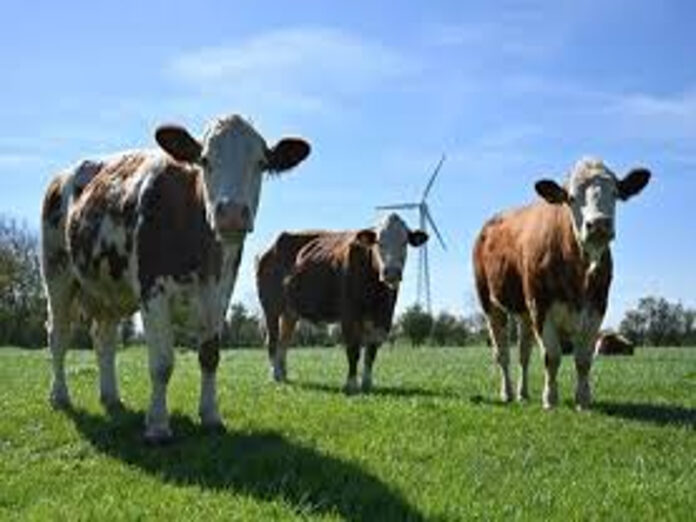Denmark Is The First Country To Tax Livestock Greenhouse Gas Emissions, To Combat Climate Change
Tuesday, July 2, 2024, 2:00 P.M. ET. 3 Minute Read, By Ryan Metz: Englebrook Independent News,
COPENHAGEN, DK.- On June 24, 2024, the Danish government announced that a deal has been reached between Farmers, Politicians, Business leaders, and others that would result in the taxation of livestock burps and other greenhouse gas (GHG) emissions. Denmark is the first country to trial such a tax which is scheduled to start by 2030.
The tax, as approved, will start at $17 per ton of emission, rising over the next five years to $43 per ton in 2035. The proceeds from this tax will be used to help transition the farming and livestock industries in Demark to more sustainable systems that produce fewer greenhouse gasses.
Currently, agriculture is the leading source of GPGs in Denmark, with livestock being responsible for nearly 15% of all GHGs worldwide. “Agriculture is Denmark’s largest emitter of CO2. It can not continue. That is why we are the first country in the world to introduce a climate tax and speed up green measures, so that we are more certainly on track to reach the 2030 target. Now there is a lot of work to be done to realize the agreement,” Lars Aagaad, Denmark’s Climate, Energy, and Supply Minister, said in a statement.
Despite being only 133 out of 192 countries in terms of size, Denmark is one of the largest exporters of pork worldwide and has a substantial beef and dairy industry.
Large numbers of livestock are thought to contribute to GHG emissions through burps and flatulence. Much of this is generated by the burps of cows, as well as other ruminant animals like goats and sheep. As these animals digest grass and other plants, a process called enteric fermentation occurs which creates methane. This methane byproduct is considered to be a potent greenhouse gas that contributes to climate change as well as the emission of CO2.
“Today, we are writing a new chapter in Danish agriculture history,” said Minister of Food, Agriculture, and Fisheries, Jacob Jensen. “Denmark is a proud food-producing nation, where we have some of the world’s most skilled farmers, for whom we now ensure a stable framework to continue producing world-class food for many years into the future. With the agreement, we create growth and jobs throughout the country, while taking care of our climate, environment, and nature.”
Other countries such as New Zealand have also considered a similar tax, though in the case of New Zealand, the plans were halted due to concerns of damaging the industry and economy. Now that Denmark has officially taken this first step, we are likely to see some other nations following suit.


